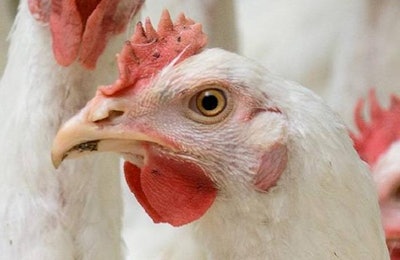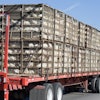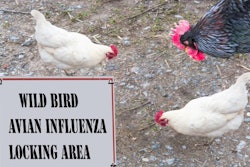
The U.S. Department of Agriculture’s Animal and Plant Health Inspection Service (APHIS) has proposed amendments to the National Poultry Improvement Plan (NPIP) and will accept public comments on those amendments until May 9.
According to APHIS, the agency wishes to update and clarify several provisions, including those concerning NPIP participation, voting requirements, testing procedures and standards. The proposed changes were approved by the voting delegates at the NPIP’s National Plan Conference and can be found on the Federal Register.
Notable proposed changes are highlighted below.
Testing birds in breeder flocks and hatcheries
The present NPIP rules call for birds in breeding flocks and hatcheries to be segregated until they have been tested and found negative for pullorum-typhoid. APHIS has proposed that the birds also be tested for any other disease for which the flock they are being introduced into holds a disease classification. Requiring that they also test negative for any other disease for which the flock holds status would ensure that the flock maintains its eligibility for other plan programs.
RRT-PCR testing for avian influenza
Another proposed amendment includes the addition of provisions for the use of real-time reverse transcriptase polymerase chain reaction (RRT-PCR) testing for avian influenza by primary breeder authorized laboratories. The present regulations provide that RRT-PRC testing must be conducting using reagents approved by the USDA and the official state agency, and using the National Veterinary Services Laboratories (NVSL) official protocol for RRT-PCR and performed by personnel who have passed an NVSL proficiency test.
U.S. Salmonella Monitored program
APHIS is proposing amendments for a new U.S. Salmonella Monitored program. The primary egg-type breeder companies routinely monitor their flocks and chicks for all Salmonella serotypes with the goal of producing a product free of Salmonella. The addition of the Salmonella Monitored program for such companies would formalize those efforts and provide recognition and potential additional marketing opportunities for flocks that choose to participate.
The provisions would mirror those of the U.S. Salmonella Monitored program for primary meat-type chicken breeding flocks.
Avian influenza sampling time frame
Another proposed change involves the testing requirements for commercial table-egg laying flocks. Presently, the regulations state that a sample of at least 11 birds from table egg layer pullet flocks and table egg layer flocks participating in the U.S. H5/H7 Avian Influenza Monitored classification must test negative to H5/H7 subtypes of avian influenza within 30 days prior to movement. The proposal calls to reduce that time period to 21 days.
In doing so, the standards would be consistent with the maximum incubation period for avian influenza, established by the World Organisation for Animal Health (OIE). It would also make the H5/H7 Avian Influenza Monitored program for commercial table-egg layers consistent with the corresponding programs for commercial broilers and turkeys.
How to comment
APHIS stated that it will consider all comments received by the May 9 deadline. People wishing to comment on the proposed changes may do so through the Federal eRulemaking Portal, or through the U.S. Postal Service. Comments may be mailed to:
Docket No. APHIS–2017–0055, Regulatory Analysis and Development, PPD, APHIS, Station 3A–03.8, 4700 River Road, Unit 118, Riverdale, MD 20737-1238.


















